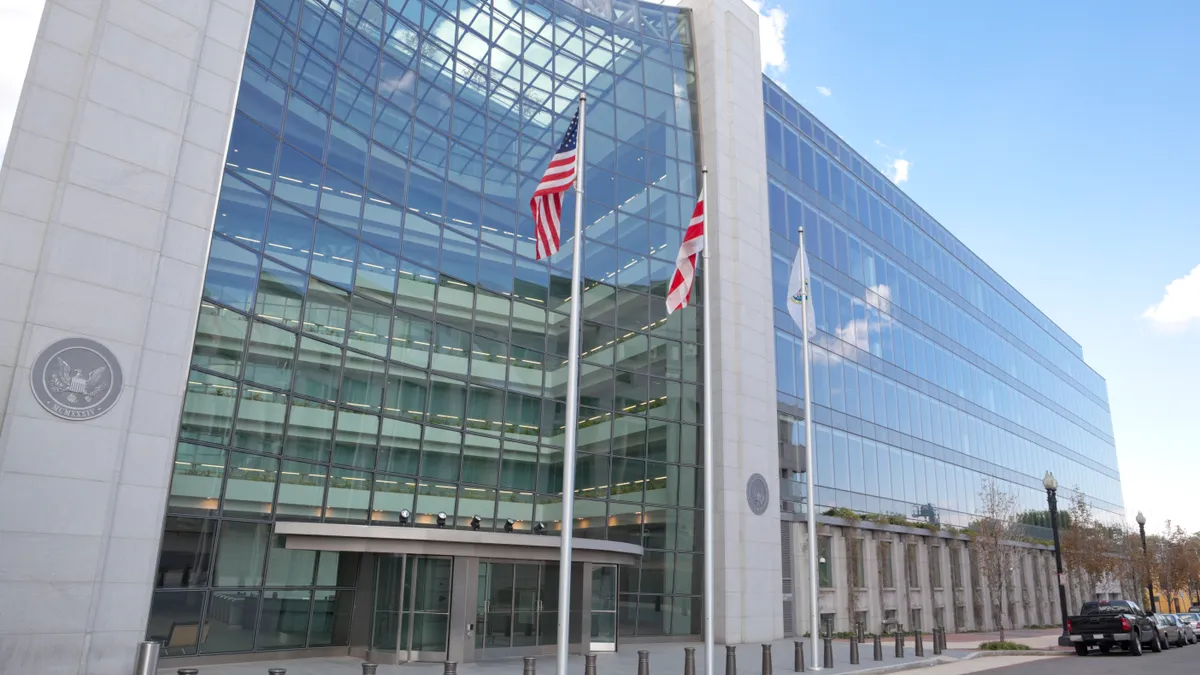Dive Brief:
- Boeing agreed to pay $200 million to settle charges by the Securities and Exchange Commission (SEC) that the company and former CEO Dennis Muilenburg misled investors about the safety of the 737 MAX airplane after fatal crashes in 2018 and 2019. Muilenburg agreed to pay a $1 million penalty without — like Boeing — admitting or denying the SEC’s findings, the agency said.
- After the first crash Boeing and Muilenburg knew that the aircraft’s flight control system posed a safety problem but publicly said the 737 MAX was “as safe as any airplane that has ever flown the skies,” the SEC said Thursday. After the second crash, Boeing and its former CEO said that certification of the flight controls was sound despite an awareness of contrary findings, the agency said.
- “In times of crisis and tragedy, it is especially important that public companies and executives provide full, fair and truthful disclosures to the markets,” SEC Chair Gary Gensler said Thursday in a statement. Boeing and Muilenburg “misled investors by providing assurances about the safety of the 737 MAX, despite knowing about serious safety concerns.”
Dive Insight:
Boeing in recent years has faced several regulatory and production problems that have stalled deliveries of commercial aircraft and impaired its financial results.
Company executives have said for several weeks that in 2022 they intend to generate positive free cash flow on an annual basis for the first time since 2018.
“It’s a turnaround, make no mistake about it,” Boeing CFO Brian West said on Sept. 15, according to the transcript of his comments at a conference hosted by Morgan Stanley.
“We will generate positive free cash flow in 2022,” West said, forecasting “strong deliveries” of the 737 MAX and other aircraft and favorable expenditures, receipts and taxes.
In the aftermath of the 737 MAX crashes that took 346 lives, Boeing has said it has upgraded its safety procedures.
The SEC said in its order that one month after Lion Air Flight 610 crashed in Indonesia in October 2018, Boeing issued a press release that selectively drew from an Indonesian government report and suggested that the crash resulted from pilot error and poor aircraft maintenance.
Boeing gave public assurances of the jetliner’s safety and failed to disclose that an internal safety review had determined that the automated flight control system posed a “safety issue” and that the company had already begun redesigning the system, the SEC said.
Six weeks after the March 2019 nosedive crash of Ethiopian Airlines Flight 302 and the grounding by international regulators of the 737 MAX fleet, Muilenburg gave assurances of safety to analysts and reporters although he was aware of information casting doubt on aspects of the certification process for the aircraft's flight control system, the SEC said.
“‘There was no surprise or gap . . . that somehow slipped through [the] certification process’” for the 737 MAX, the SEC quoted Muilenburg as saying.















